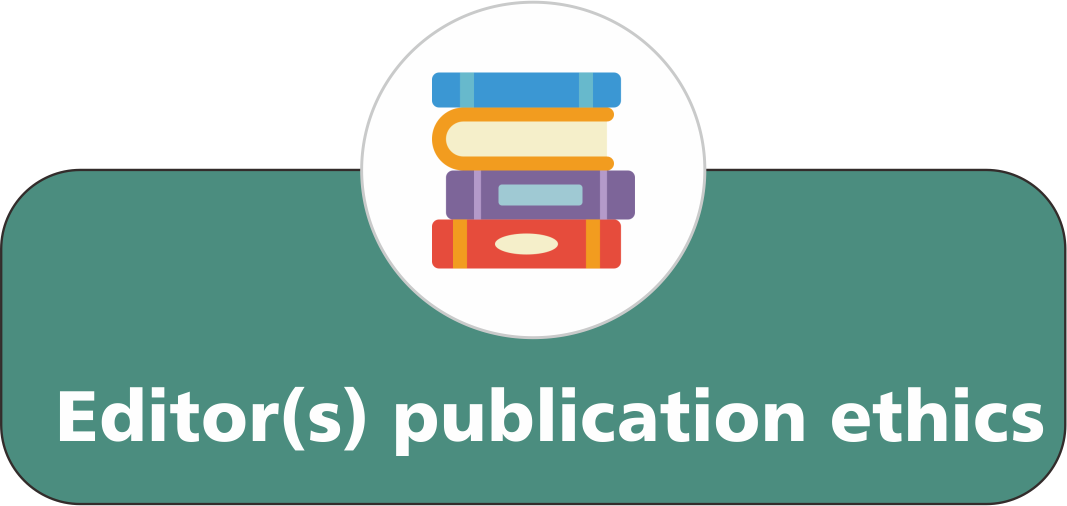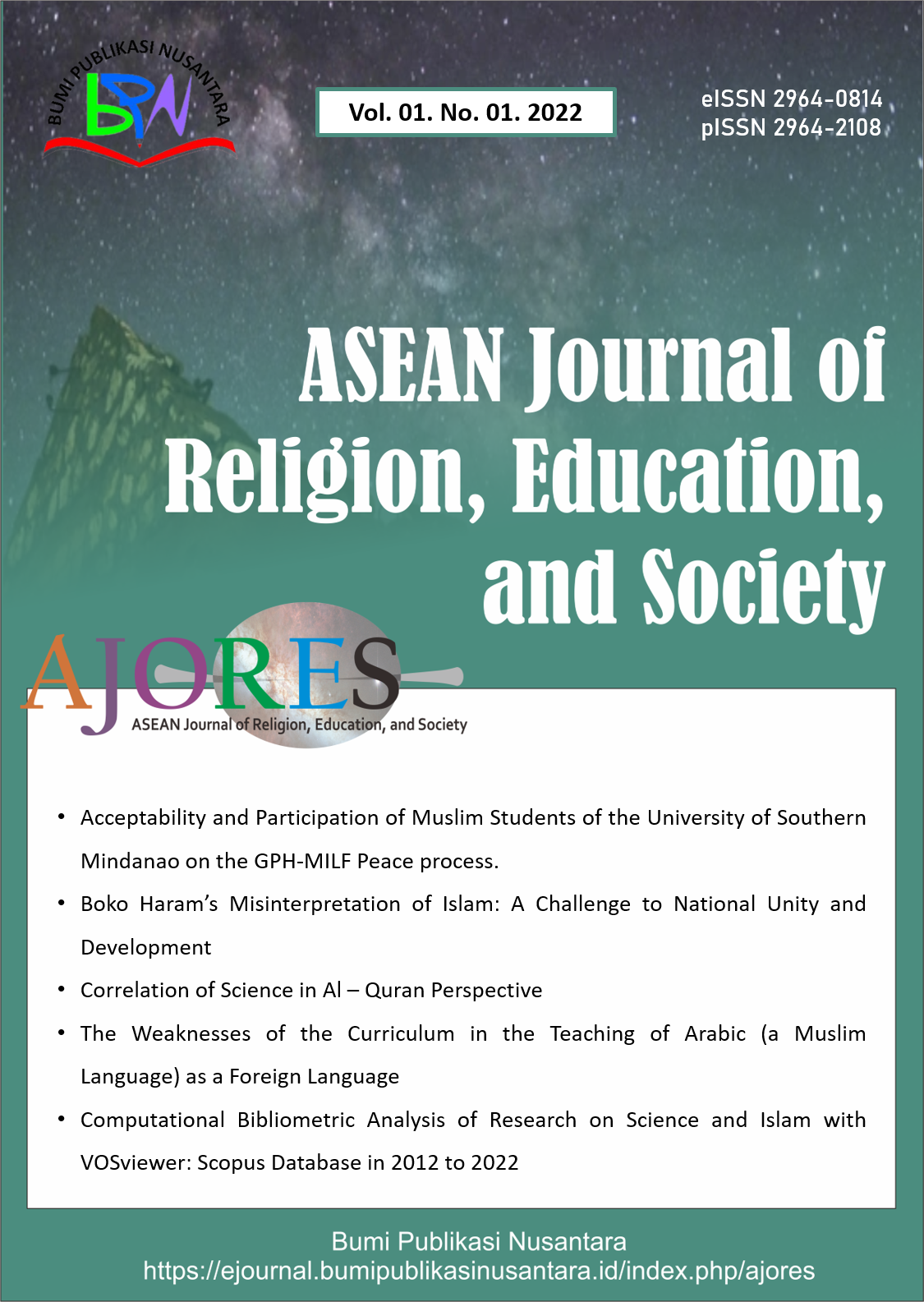Influence of Faith-Based Schools on Pupils’ Religion Tolerance
 ), Fatimat Abiodun Jimoh(2), Hamdalat Opeyemi Aliyu(3),
), Fatimat Abiodun Jimoh(2), Hamdalat Opeyemi Aliyu(3),
(1) Kwara State University
(2) University of Ilorin
(3) Kwara State University
 Corresponding Author
Corresponding Author
Abstract
Keywords
References
Aluko O.P. (2017). Tolerance in multi-religious society for national security: The Nigerian experience. OGIRISI a New Journal of African Studies, 13(1), 291-308.
Anggraeni, R., and Maryanti, R. (2021). Implementation of video learning media in Islamic Religious Education subjects. Indonesian Journal of Multidiciplinary Research, 1(2), 257-266.
Aubakirova, S.S., Ismagambetova, Z.N., Karabayeva, A.G., Rysbekova, S.S., and Mizabekova, A.S. (2016). Tolerance issue in Kazakh culture. International Journal of Environmental and Science Education, 11(12), 5034–5048.
Dowd, R.A. (2016). Religious diversity and religious tolerance: Lessons from Nigeria. Journal of Conflict Resolution, 60(4), 617-644.
Jackson, R. (2003). Should the state fund faith-based schools? A review of the arguments. British Journal of Religious Education, 25(2), 89-102.
Kayode, A.M., and Jibril, A.O. (2023). Impact of traditional qur'anic schools on Islamic education. ASEAN Journal of Religion, Education, and Society, 2(2), 101-108.
Mamirjonovna, M.M. (2024). Mechanism of development of students' spiritual development following professional training. ASEAN Journal of Religion, Education, and Society, 3(1), 1-10.
Rubini, Fuadah, S.A., and Zahrani, H. (2023). The concept of tolerance interreligious and its boundaries in an Islamic perspective. Islam in World Perspectives, 2(1), 40-46.
Suraju, S.B. (2014). Peace and religious tolerance education in Nigeria: The islamic perspective. World Educators Forum, 3(1), 309-322.
Von Bergen, C.W., and Collier, G. (2013). Tolerance as civility in contemporary workplace diversity initiatives. Administrative Issues Journal Education Practice and Research, 3(1), 86-97.
Article Metrics
Abstract View : 526 times
: 526 times Download : 442 times
Download : 442 times
Refbacks
- There are currently no refbacks.
Copyright (c) 2024 Bumi Publikasi Nusantara

This work is licensed under a Creative Commons Attribution-ShareAlike 4.0 International License.







